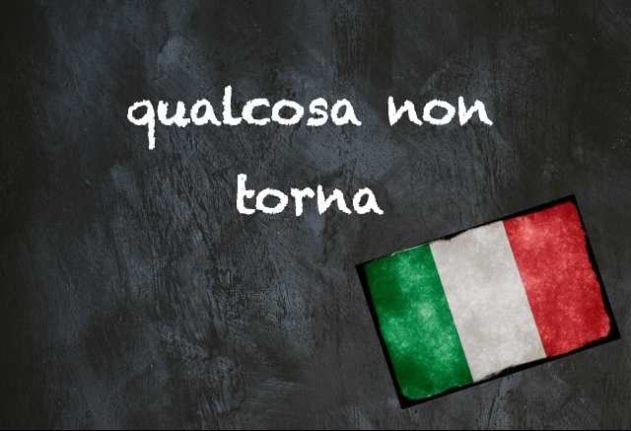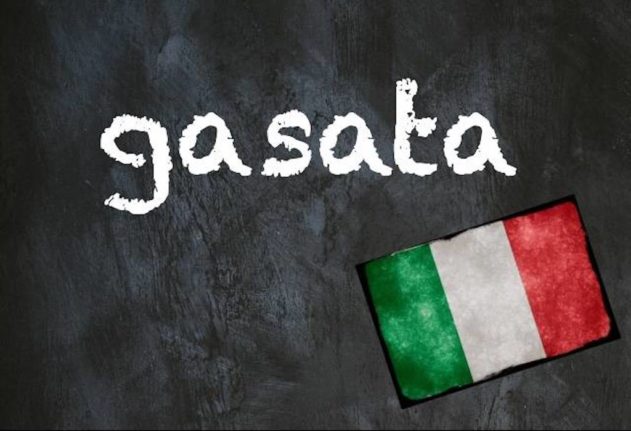Ever get the feeling that things aren’t quite right, that perhaps you’re missing something, that something fishy might be going on?
In Italian you can express that with the phrase qualcosa non torna (‘qual-KOH-zah-non-TORR-na’).
Qualcosa you’ll probably recognise as meaning ‘something’, and non of course here means ‘doesn’t’, so the slight wild card for anglophones is the verb torna.
That’s because tornare means ‘to return’ in most contexts – but it can also mean to balance, to add up.
Ho calcolato le spese. Il conto torna.
I added up the costs. The bill checks out.
I conti dell’azienda tornano.
The company’s accounts add up.
The word can also refer more nebulously to something sounding or feeling right – or not.
Secondo me c’è qualche parte del mio discorso che ancora non torna.
I think there are parts of my speech that still aren’t quite right.
And when something doesn’t torna – that’s when you know things are off. It’s the kind of expression you’re likely to hear in detective shows or true crime podcasts.
Qualcosa non torna nel loro racconto.
Something about their story’s off.
C’è solo una cosa che non torna.
There’s just one thing that doesn’t add up.
It’s similar to how we can talk in English about someone’s account of an event not ‘squaring’ with the facts, and in fact you can also use that metaphor in Italian – qualcosa non quadra (‘qual-KOH-zah-non-QUAHD-ra’) – to mean the same thing as qualcosa non torna.
You can adjust either phrase slightly to say ‘things don’t add up’ in the plural: this time you’ll want le cose instead of qualcosa, and to conjugate the tornare or the quadrare in their plural forms.
Ci sono molte cose che non tornano in quest’affare.
There are a lot of things about this affair that don’t add up.
Le loro storie non quadrano.
Their stories don’t square.
You can also add pronouns into the phrase to talk about something seeming off ‘to you’ or anyone else.
La sua storia ti torna?
Does his story add up to you?
C’è qualcosa in tutto questo che non mi torna.
There’s something about all this that doesn’t seem right to me.
The next time something strange is afoot, you’ll know just how to talk about it in Italian. Montalbano, move aside…
Do you have an Italian word you’d like us to feature? If so, please email us with your suggestion.



 Please whitelist us to continue reading.
Please whitelist us to continue reading.
Member comments